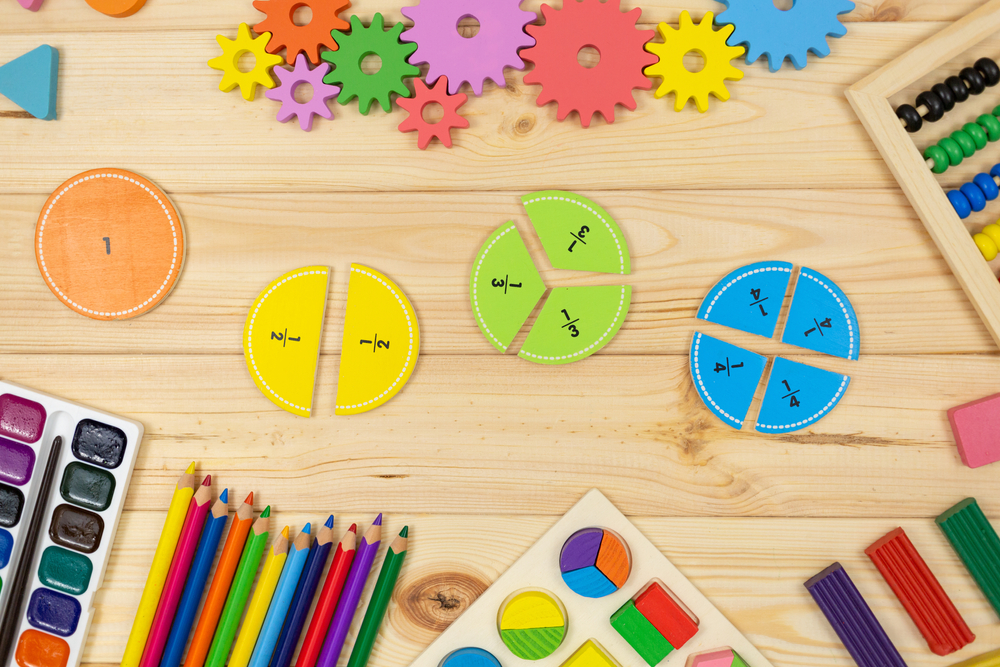Counting practice Normal Math Worksheets for Ages 4-5
13 filtered results
-
From - To
Our engaging Counting Practice Normal Math Worksheets for Ages 4-5 help young learners build a solid math foundation through fun and interactive activities. Designed to captivate preschoolers' attention, these printable sheets cover essential counting skills up to 20. Children will enjoy a variety of exercises that involve counting objects, tracing numbers, and identifying number sequences, all crafted to enhance their numerical proficiency and confidence. Ideal for both classroom use and at-home practice, these worksheets offer a nurturing learning experience that supports early math success. Help your child develop essential counting skills with our expertly designed resources today!
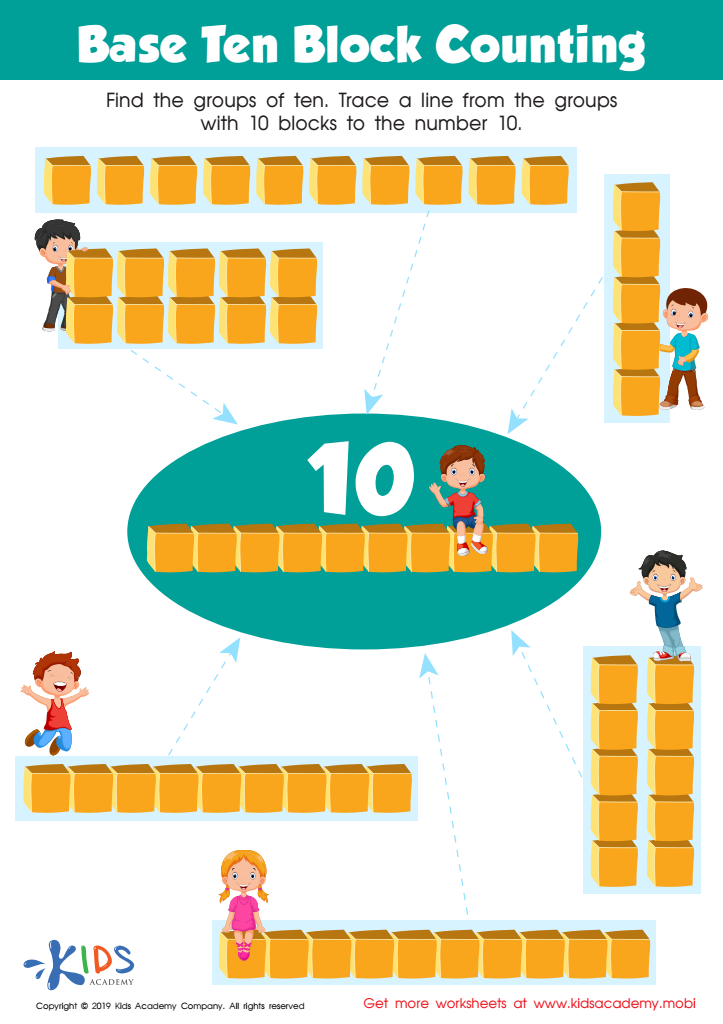

Base Ten Block Counting Worksheet
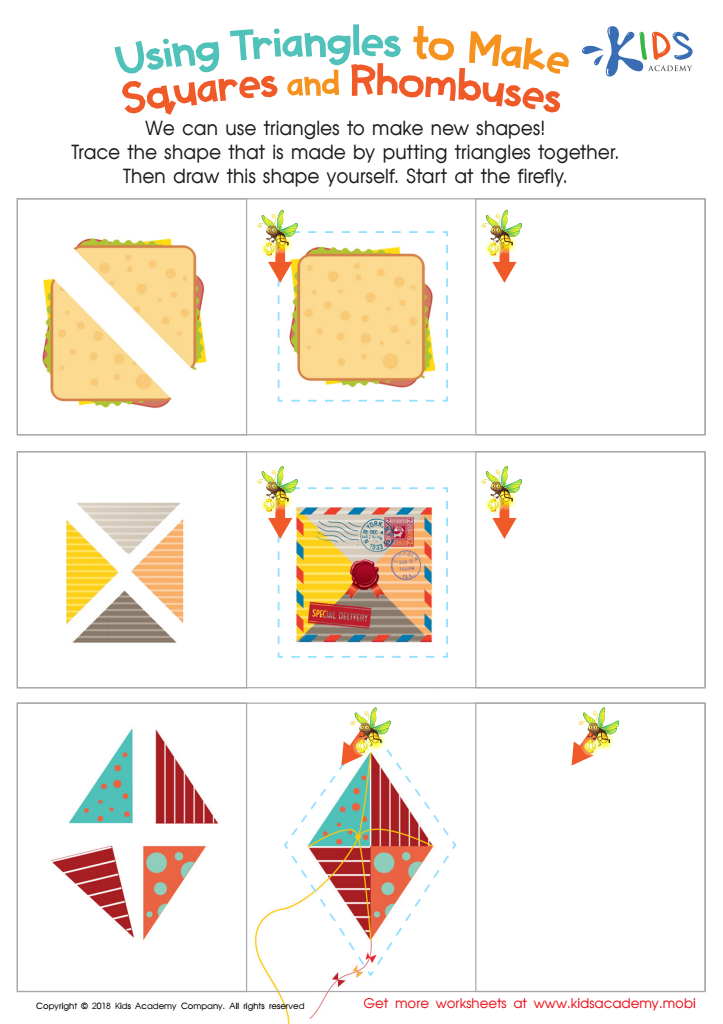

Using Triangles to Make Squares and Rhombuses Worksheet
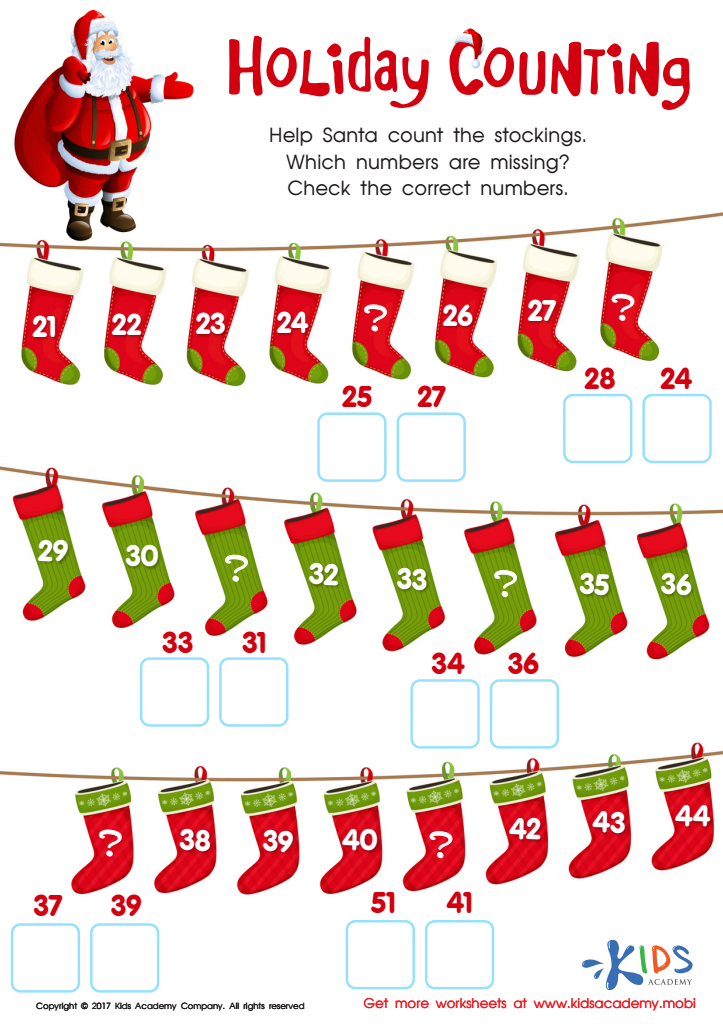

Holiday Counting Worksheet
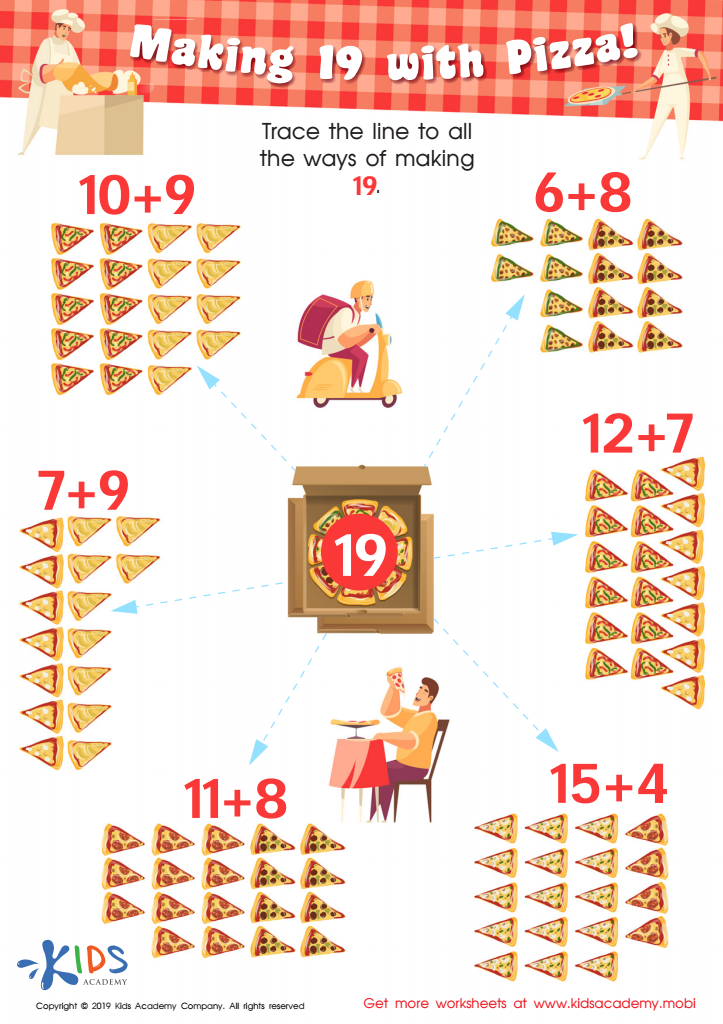

Making 19 with Pizza! Worksheet
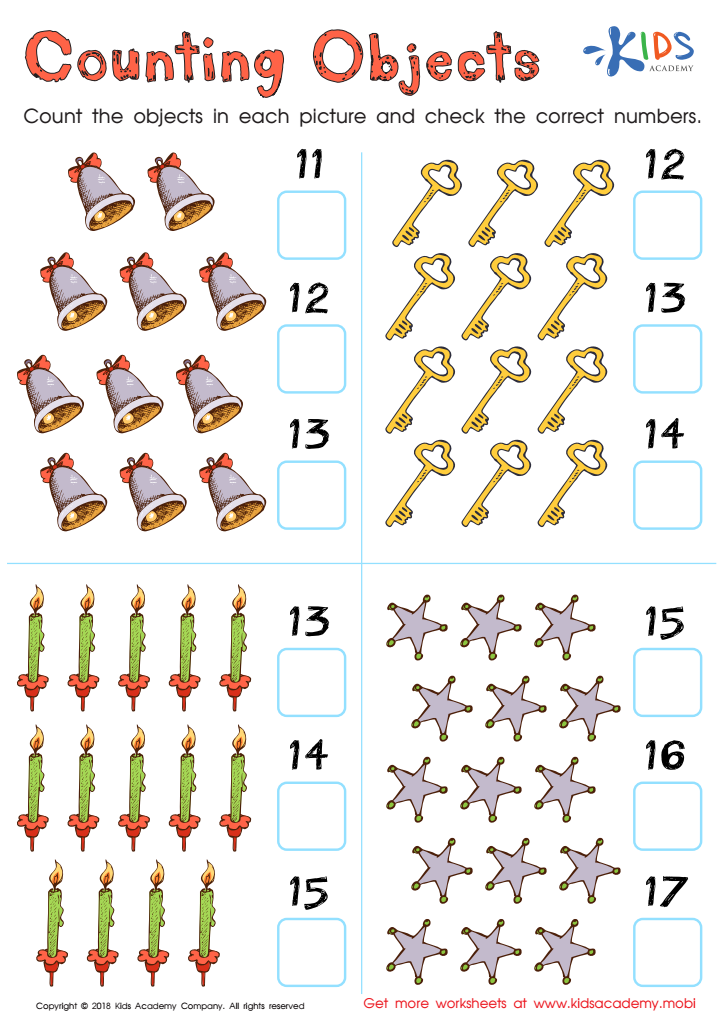

Counting Numbers Worksheet For Kindergarten
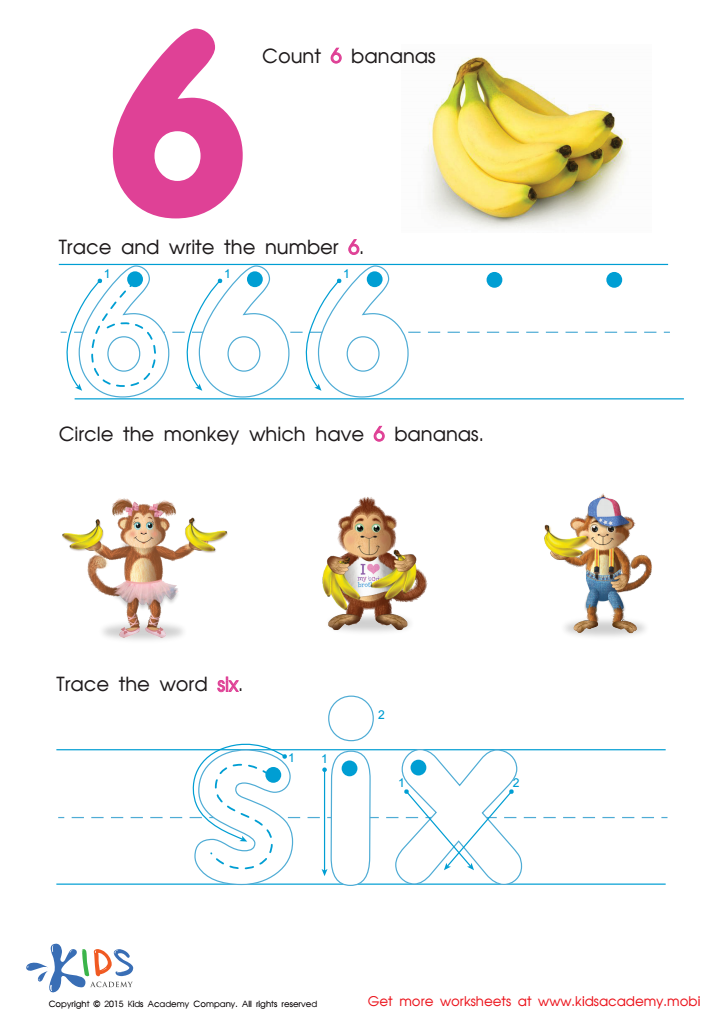

Tracing And Writing Number 6 Worksheet
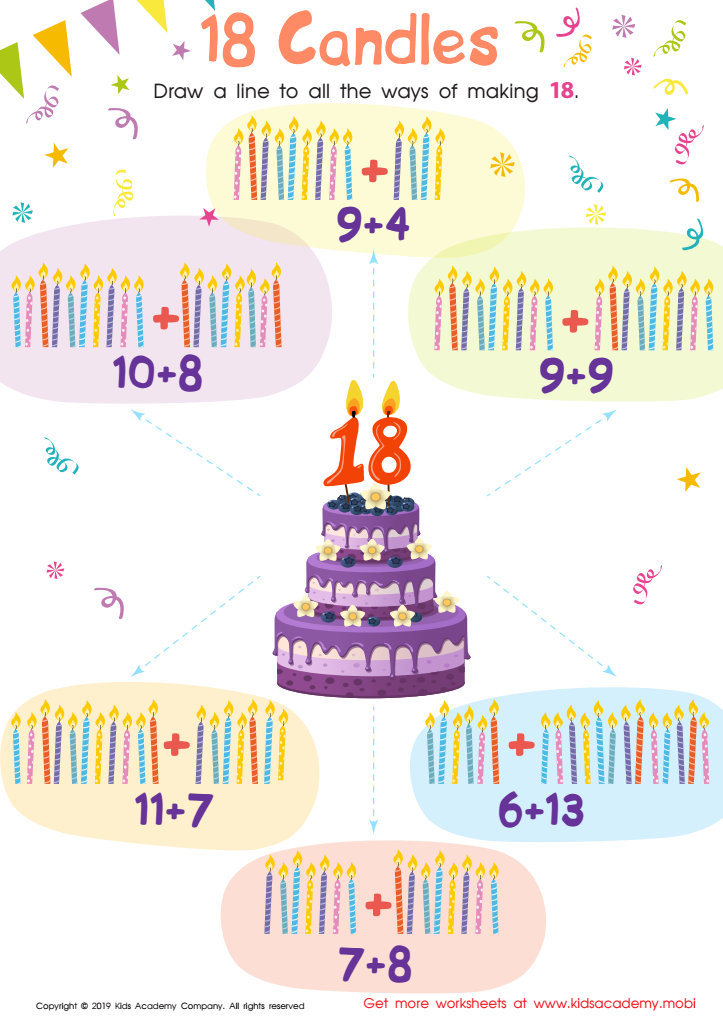

18 Candles Worksheet
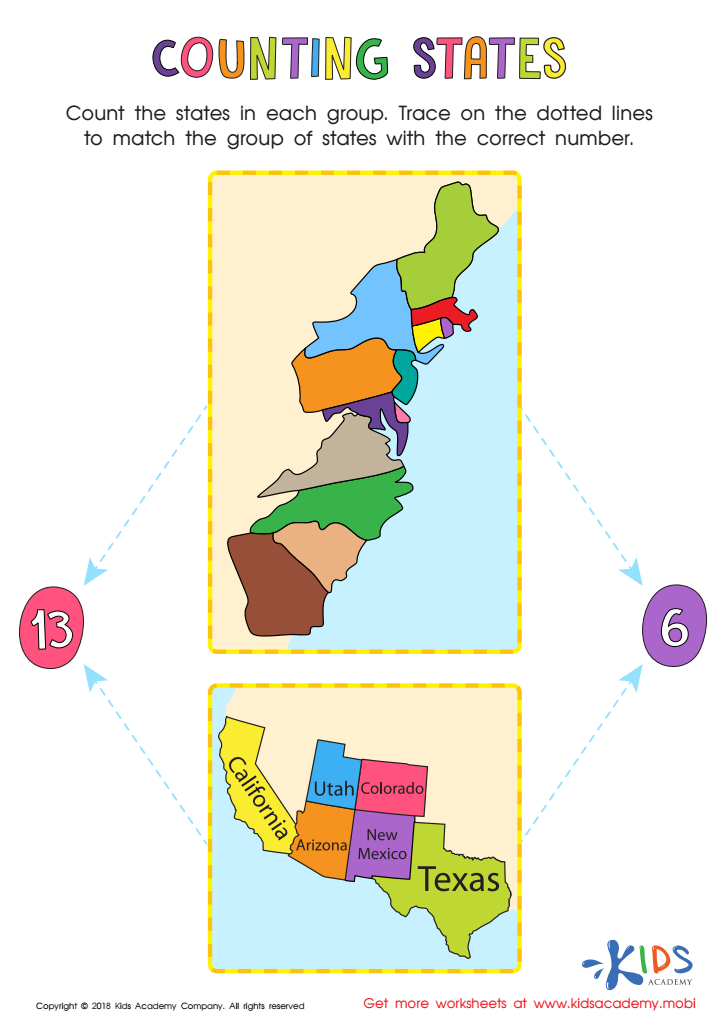

Counting States Worksheet
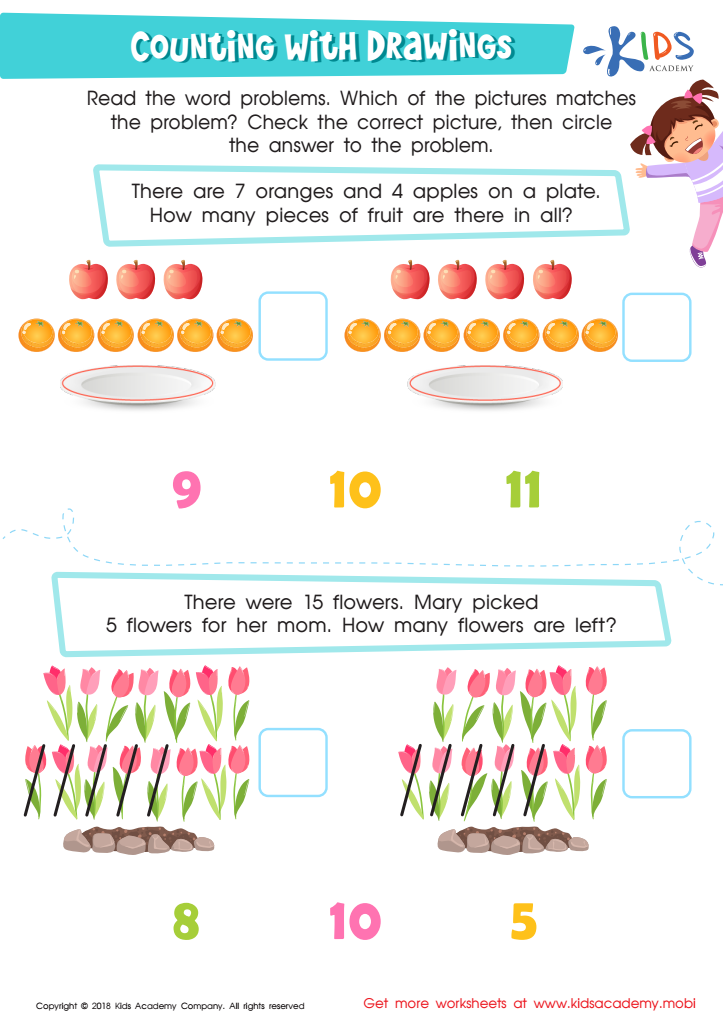

Counting with Drawings: Fruits & Chocolates Worksheet
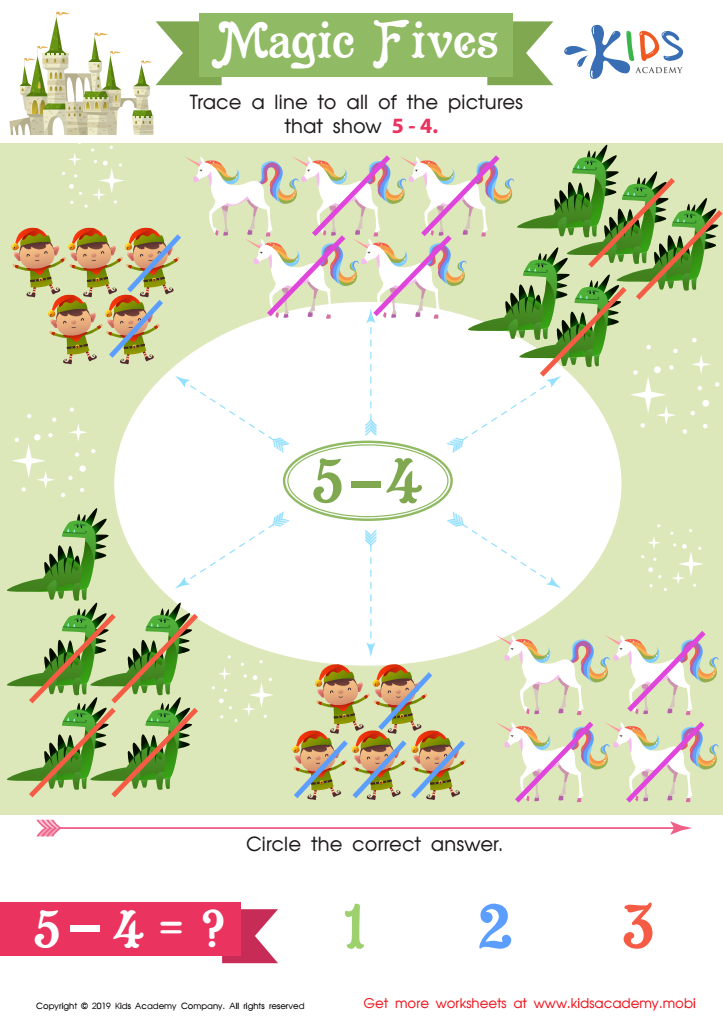

Magic Fives Worksheet
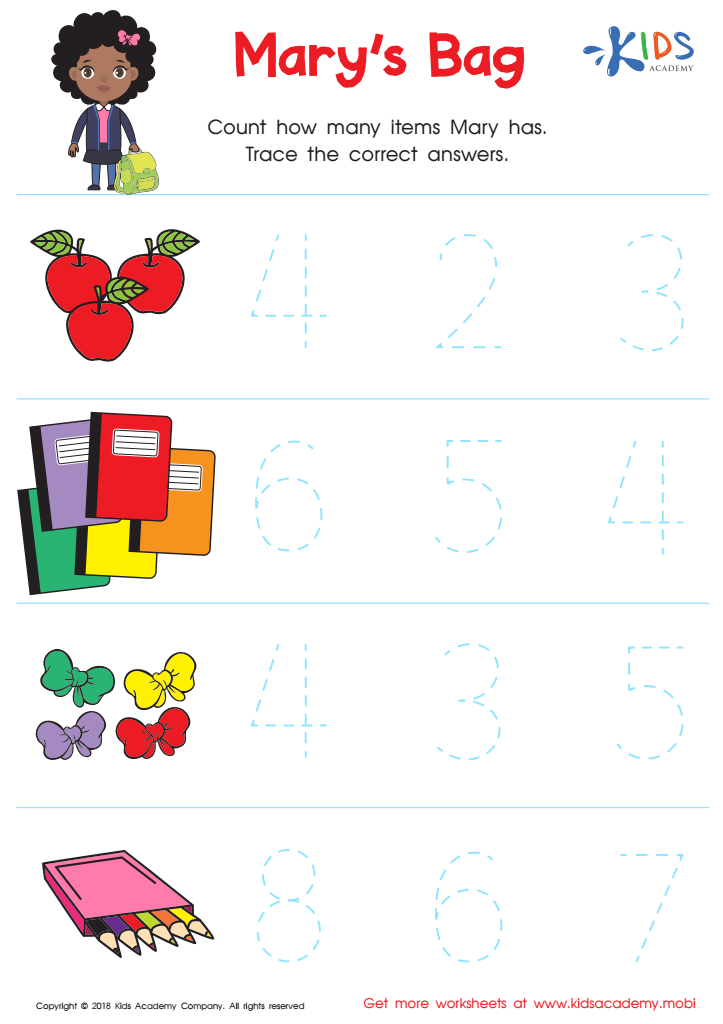

Kindergarten Number Tracing: Mary's Bag Worksheet
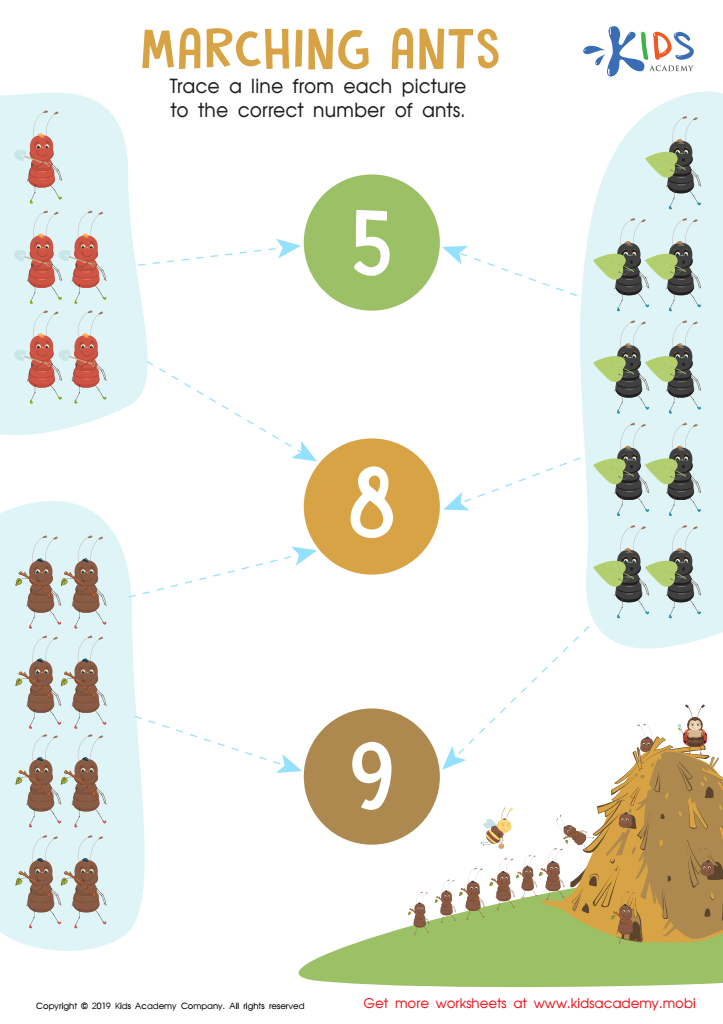

Marching Ants Worksheet
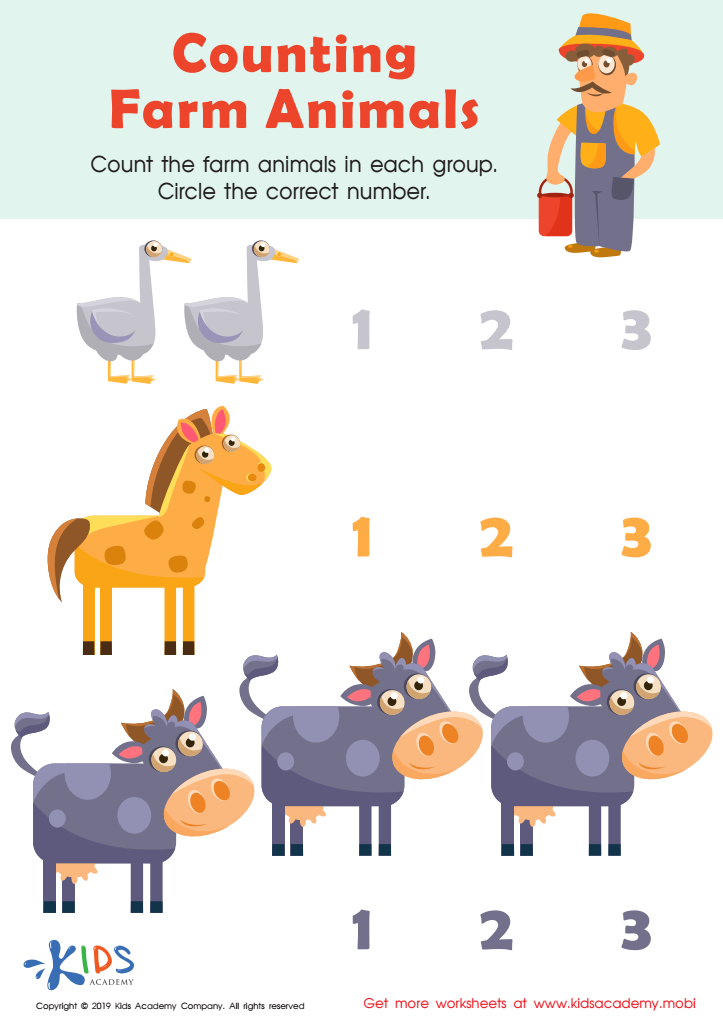

Counting Farm Animals Worksheet
Counting practice is foundational for children aged 4-5, offering numerous benefits that parents and teachers should care deeply about. At this developmental stage, counting is not just about knowing numbers but about understanding the world around them. It forms the cornerstone of future mathematical concepts such as addition, subtraction, and place value. Regular counting practice helps children develop numerical fluency, ensuring they can easily transition to more complex tasks later in school.
Moreover, counting activities can enhance cognitive skills such as memory, attention, and problem-solving. When children count objects, they learn one-to-one correspondence, ensuring they understand that each number represents a specific quantity. This comprehension is crucial for their logical thinking and spatial awareness.
Additionally, counting promotes language development. As children learn number names and sequences, they broaden their vocabulary and language skills which are critical for effective communication. Engaging in counting practice also fosters social interactions when done in group activities, helping children learn to cooperate and share.
Overall, investing in early counting practice provides children with a strong foundation for academic success, encourages cognitive development, and supports essential life skills. Parents and teachers play a critical role by fostering an environment where counting is a fun and integral part of learning.
 Assign to My Students
Assign to My Students





